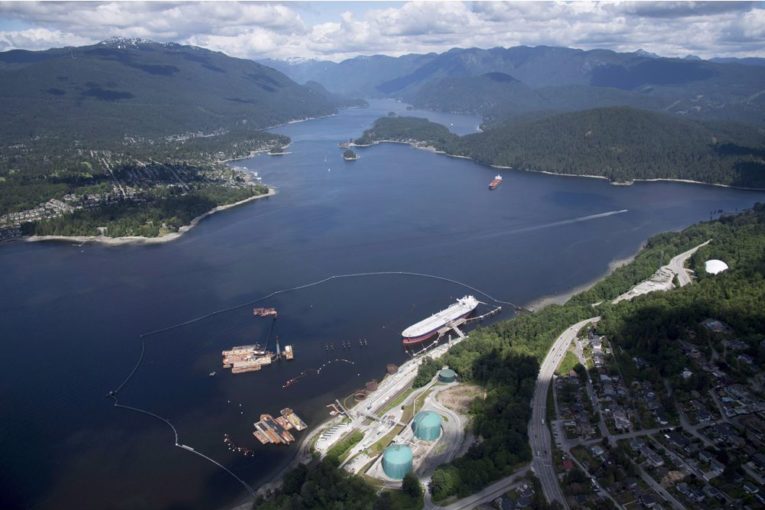
VANCOUVER — The National Energy Board would require the creation of a marine mammal protection program for the Trans Mountain pipeline in a series of draft conditions it has laid out before it considers the project.
The focus of the review is to apply the Canadian Environmental Assessment Act and the Species at Risk Act to project-related marine shipping, the board says in the document.
The conditions mitigate potential risks to the environment and protect the public, it says.
Releasing these draft conditions and recommendations is not an indication of the board’s forthcoming recommendation to the federal government to either approve or deny the project, it says.
The board, which has to have its final recommendations in by Feb. 22, also recommends a number of measures be taken to offset the increased underwater noise and potential risk posed by ship strikes of marine mammals including southern resident killer whales.
Terry Beech, parliamentary secretary to the transportation minister, had said earlier the southern resident killer whale is a vital part of Canada’s local marine ecosystem.
“The survival of this iconic species is a priority of our government and indeed a priority for all Canadians,” he said.
The Federal Court of Appeal quashed the government’s approval of the project in August, citing the energy board’s failure to examine impacts on the ocean ecosystem, including B.C.’s endangered southern resident killer whales. It also found Canada failed to meaningfully consult with First Nations during the final phase of discussions.
The board is also looking to limit the number of whale watching boats and the amount of time they spend on the water.
Prime Minister Justin Trudeau’s government, which purchased the pipeline and expansion project for $4.5 billion, ordered the energy board to review the project’s marine shipping effects within 155 days.
Federal Fisheries Minister Jonathan Wilkinson said Thursday the draft recommendations and conditions are an “important step towards meeting the reasonable timeline that we provided, and the type of progress that Canadians expect to see.”
“The National Energy Board is an independent regulator and is responsible for overseeing the review on marine shipping,” he said. “We will carefully review them and provide comment, as necessary.”
The board is seeking comment on its draft conditions.
Trans Mountain could not immediately be reached for comment.
The Trans Mountain marine protection plan should be in place three months before it starts operations and should describe how it will incorporate Indigenous traditions and knowledge in developing its programs, the board says.
The federal government should review and update its marine shipping oil spill response requirements and look at including Indigenous Peoples and local communities in response planning, it recommends.
The pipeline expansion would triple the amount of oil being carried from the Edmonton area to a marine shipping terminal in Burnaby, increasing the number of tankers in Metro Vancouver waters seven-fold.
It also would like to see a regulator framework for making enhanced tug escort mandatory in the Salish Sea for oil tankers.
The federal government should implement a marine bird monitoring program to better understand impacts of vessel use on avian wildlife including species at risk, it says.
Greenhouse gas reduction measures related to marine shipping should be accelerated and implemented, the board recommends.
You can read more of the news on source
